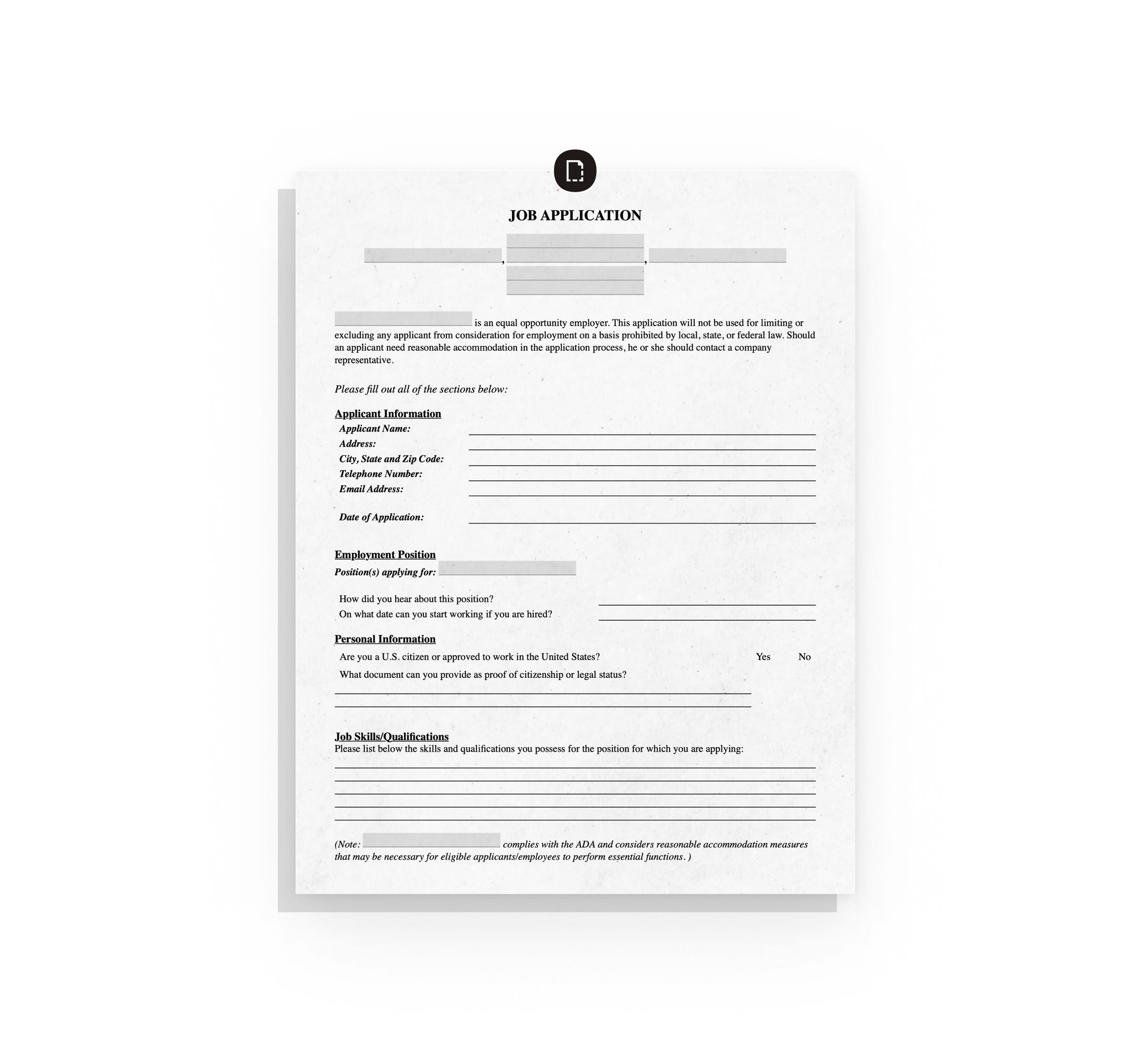What is a job application form?
A job application form is used by employers to collect details from job seekers during the hiring process.
It includes sections for personal information, education, work experience, and references. This provides hiring managers with additional information when choosing a potential new employee.








